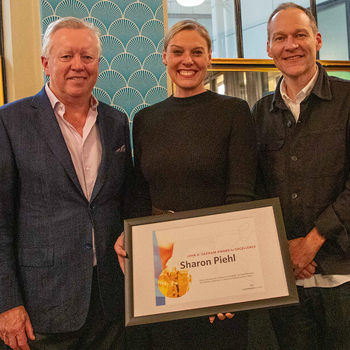Mobile Turns Out Tops at the World Economic Forum
Be it financial inclusion, education, healthcare or social reform, mobile was the key word associated with discussions around these topics at the World Economic Forum on Africa 2013, held in Cape Town this past week.
Mobile is perhaps a distinctly African opportunity. The fact is that more people have mobile phones in Africa than they have bank accounts. Africa has more than 650 million mobile phone subscribers, which is more than the US or the European Union. And it’s a market that has grown exponentially. According to the World Bank, since 2000 the mobile phone market in Africa has grown 40-fold, from 16.5 million.
So, what’s the opportunity or the learning? The fact is that people have confidence in using their phones and companies can tap into this confidence to unlock growth potential in their market. Be it a child of five years old in South Africa or a 70 year old woman in Accra, Ghana all are familiar with the technology.
Mobility addresses two issues – access and affordability. The financial services and other industries can capitalise on these and confidence levels to ensure better penetration and adoption of products and services they are rolling out over the continent.
While financial inclusion is a topic that is increasingly coming to fore in the Africa and other emerging economies and was firmly on the agenda for this year’s World Economic Forum on Africa, the use of mobile innovation is not limited to the financial services market. In attending other sessions during the Forum, it was evident that mobile is creeping into other discussions as well. And the one that caught my attention was the mobility of education.
Education or access to education remains a massive challenge for our beautiful continent, but we need innovative solutions to fight the rhetoric and move towards action and delivery of education. MOOCs or Massive Open Online Courses which are online courses aimed at large-scale interactive participation and access via the web are rising in popularity.
Online and mobile education could play a large role in addressing the issue of getting into rural areas across the continent. But in a robust discussion on Higher Learning at the Forum, concerns were raised over the sophistication of handset devices across Africa and their ability to deliver content fit for learning online or in a mobile environment. Not everyone has a smartphone in Africa and the question raised then is how someone will access educational content on an entry level device. Perhaps initiatives like the launch of Nokia’s $99 smartphone which seems to be predominately focused on emerging markets could help to address this.
Mobile is without a doubt in the spotlight and its ability to unlock value in many different industries is one worth keeping an eye on. If mobile technologies have made such significant inroads in the past five years in changing how we do things, such as how we make payments or how we learn, the mind boggles at the thought of fast forwarding five years and seeing the potential it has unlocked.
As V Shankar of Standard Chartered said during his address at the Building Africa’s Financial Sector discussion, there is nothing better that captures the opportunity for Africa than Shakira’s hit from the 2010 FIFA World Cup™ – “It’s Time for Africa”.
Vanessa Baard is a Director at FH SA.
Find Out More
-
Digital Insights Bulletin - October 2024
October 31, 2024
-
Sharon Piehl Wins 32nd Annual John D. Graham Award for Excellence
October 25, 2024
-
Digital Insights Bulletin - September 2024
September 30, 2024


